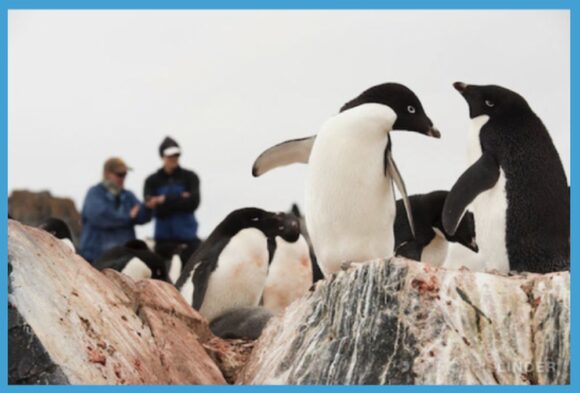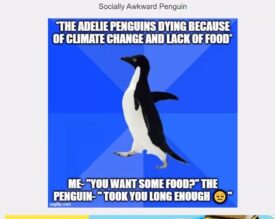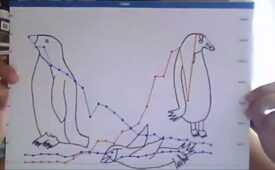 Youth learn how to interpret data, and what it means for the planet and a changing climate.
Youth learn how to interpret data, and what it means for the planet and a changing climate.
As part of the annual Rutgers 4-H STEM Ambassador Program and the National 4-H From Home series, 4-H’s Rutgers Science Program provided two, one-week summer programs, in early August, entitled “Data to the Rescue: Penguins Need our Help!” for youth from all backgrounds and from all parts of the nation, including 4-H STEM Ambassador Program participants and students from the Trenton-based Mill Hill Child and Family Development Center.
The students joined a team of research scientists who travel to Antarctica each year to collect data on penguins and their habitat and the effect climate change is having on both.
With support from the National Science Foundation (NSF), and part of the Rutgers-based Polar Literacy Project, these set of programs enabled youth to analyze real scientific data to figure out the relationship between changing sea ice and Antarctic penguin habitats, then use their creative skills to come up with a way to share this story to a larger audience.

Students were challenged to come up with a creative way to present data about changes in penguin populations and amount of sea ice lost over the past 30 years. Artwork: Devon Johnson, Mill Hill.

Students were challenged to come up with a creative way to present data about changes in penguin populations and amount of sea ice lost over the past 30 years. Artwork: Alison Lopez, Mercer County.
The eighty-plus students analyzed real scientific data like penguin population counts, dove into learning a new computer statistical software – CODAP, featured their creative side in a Data Jam presentation, followed along with polar scientists and their research, and met new friends who share their interest in STEM.
To prepare the students to be a Polar Explorer, science kits were mailed in advance of the first program to all participants. The virtual sessions were held on Zoom and ran by Polar Scientists and 4-H Staff. Creative teaching experts from the George Street Playhouse located in downtown New Brunswick, NJ also helped to integrate a way of communicating science and methods for the students to “break the ice” in a creative investigation of space, story-telling and ensemble building.
Students enjoyed the experience of working with each other and the autonomy they were given to choose what data jam they would use to represent their own data as well as the chance to explore the data software CODAP on their own. “I loved how we all were being so creative and we were able make our own choices to choose what we are going to use to represent our data.”
4-H’s Rutgers Science Program achieved the goal of having the students make meaning of the scientific findings they were exposed to throughout the sessions. Studying significant changes in the population of penguins led to larger scientific findings related to sea ice changes and global warming.

